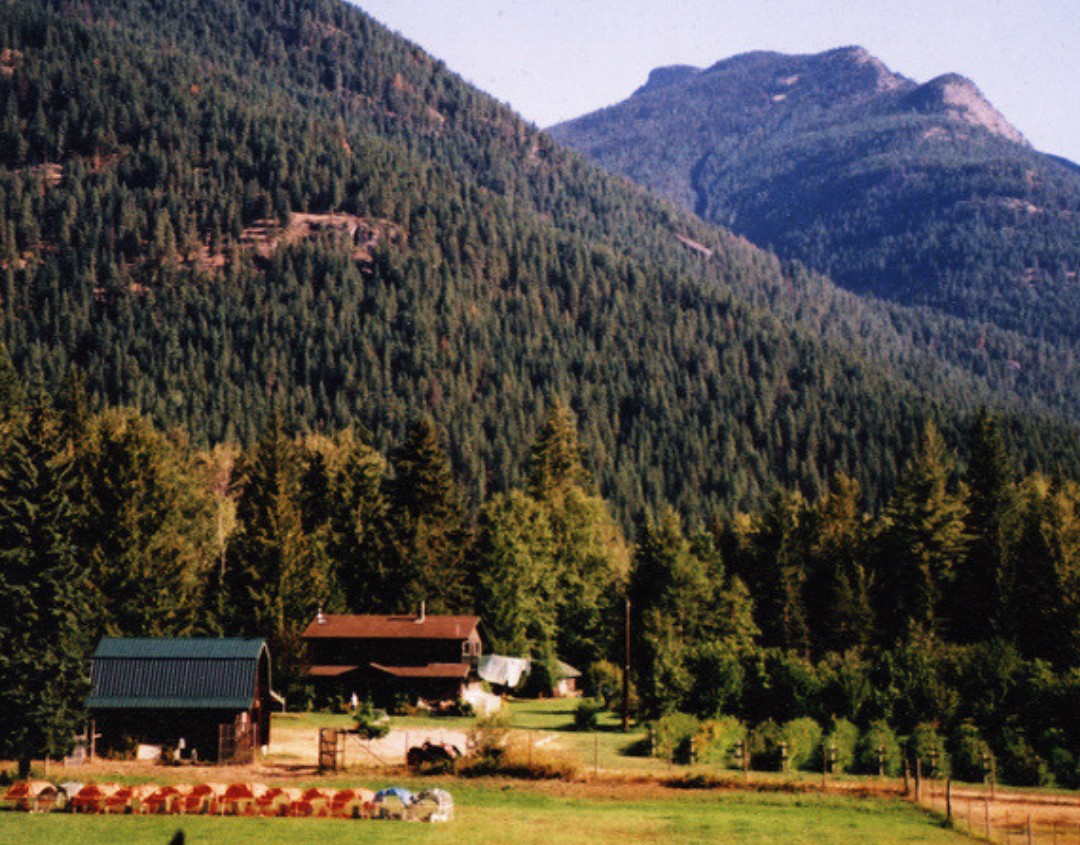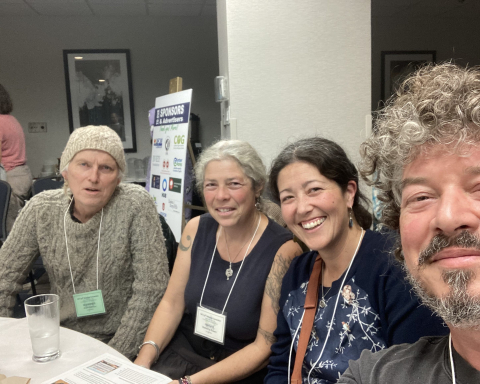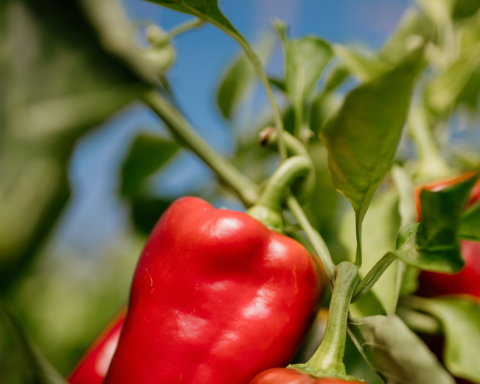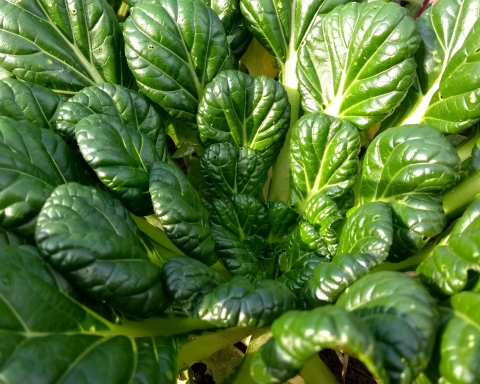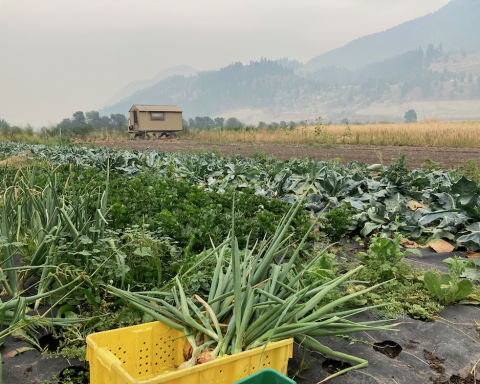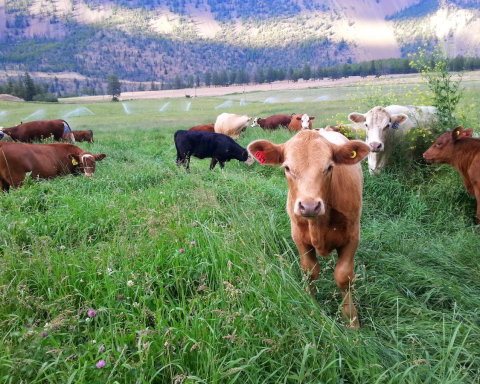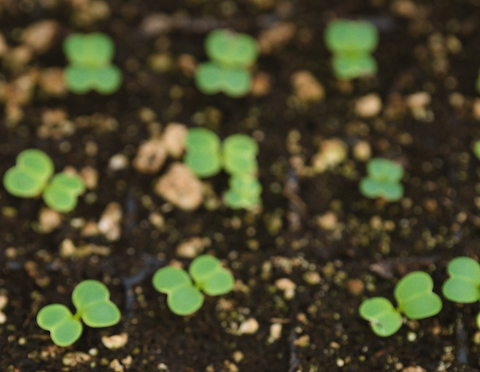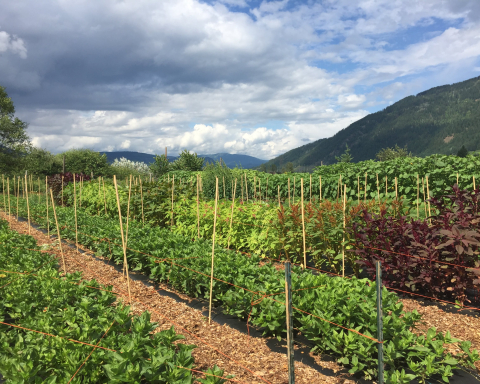The Year the Butterflies Came Back: A Story of Transition at Tulaberry Farm
Hailey Troock
I picked up the phone one cold winter day in 2019 to a request from the owners and operators of Tulaberry Farm in the picturesque riverside community of Passmore, BC. Judi Morton and Alex Berland wanted to find some young and enterprising farmers to continue the legacy of their certified organic farm. After decades of farming in the Slocan Valley, where they raised their family and had become integral members of the local community, they had a beautiful space and knowledge to share.
A little more than a year later, Emily Woody and Nathan Wiebe, two farmers operating Confluence Farms out of Kelowna, BC, were searching for land. They had a dream to relocate their market garden and bakery start-up to the Kootenays, somewhere near Nelson, where they could establish roots for the long-term. In one season they had grown out of the backyard space they had started their farm on, selling through CSA shares and delivery.
All I had to do was introduce the two couples through the BC Land Matching Program (BCLMP), and the rest seemed to fall effortlessly into place—truly a confluence.
As Tulaberry and Confluence start down the path of transition together, it’s worth considering what farm transition is all about.
For me, it’s a million things. Last fall, our team at Young Agrarians released the BC Transition Toolkit for Non-Family Farm Transfer, and the process of researching and creating this resource provided us all with an in-depth understanding of a pretty complex topic: how do we transfer farms from one generation to the next, outside of the family? Something that stuck with me is how the mentorship available within the process of transition can be a fundamental part of the success of the incoming farm business.
New farmers face myriad challenges in today’s agricultural, economic, and climatic landscapes. It can take years to build up clientele, pay off start-up costs, establish secure sales channels for your products, learn the land and soil, mitigate increasing climatic variability, and more. Transitioning into an established farm can ease this learning journey, as the outgoing farmer passes along this critical information to their successors.
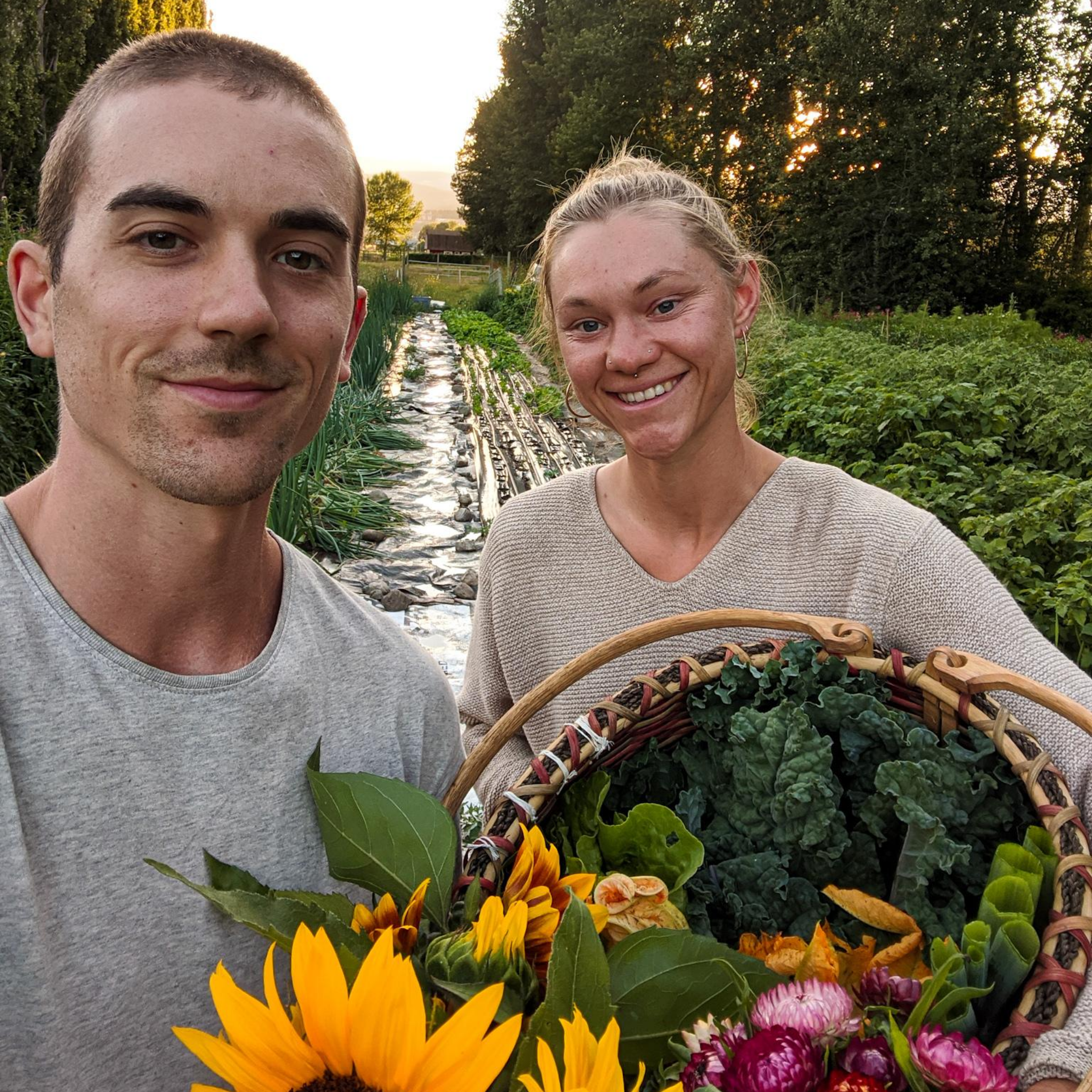
Judi came to be the steward of Tulaberry Farm when she purchased the land in 1968. She lived there for a few years before leaving, then coming back for a second stint. This is when Alex came into the picture in 1974. After 12 years together on the land they left to pursue other careers in Vancouver, where they stayed for two decades. Eighteen years ago, they relocated back to Tulaberry for good. Judi went from being an intensive care nurse at the children’s hospital to diving full-time into farming. She says the transition felt natural; though “people think they are unrelated, both are nurturing roles.”
Judi’s most prominent memory from her early years on the farm centre around her second season stewarding the land full-time. She refers to this as “the year the butterflies came back.” The planting of perennials, shrubs, and fruit bushes—food for the beautiful pollinators—breathed new life onto the land. Judi and Alex’s farming philosophy speaks to this. She says we “sought to leave the land better than we found it” and that they, like all of us, are stewards of the land we inhabit. They don’t feel they own the land: “though we bought it, we get the privilege to steward it,” she says.
Judi’s experience living in their community has evolved since those early years. “When we were first at Tulaberry before we left for 20 years, we were deeply embedded in our community. When we came back, we picked up much of the same community but also many new friends who had moved there.” Though many of the “old guard from 70s and 80s remain good friends,” she says, referring to her original cohort, “much of my social circle has centered around farming over the years.” Judi is also excited about the young families she has seen moving into the area over the past decade.
The Kootenay Organic Growers Society has played a big part in her farming community specifically. “Farming is a very lonely business,” she says, “and you are working alone a lot. Going to market was my social life; I was always so excited to see other farmers. When it was slow, we would congregate to the centre to share information and talk.”
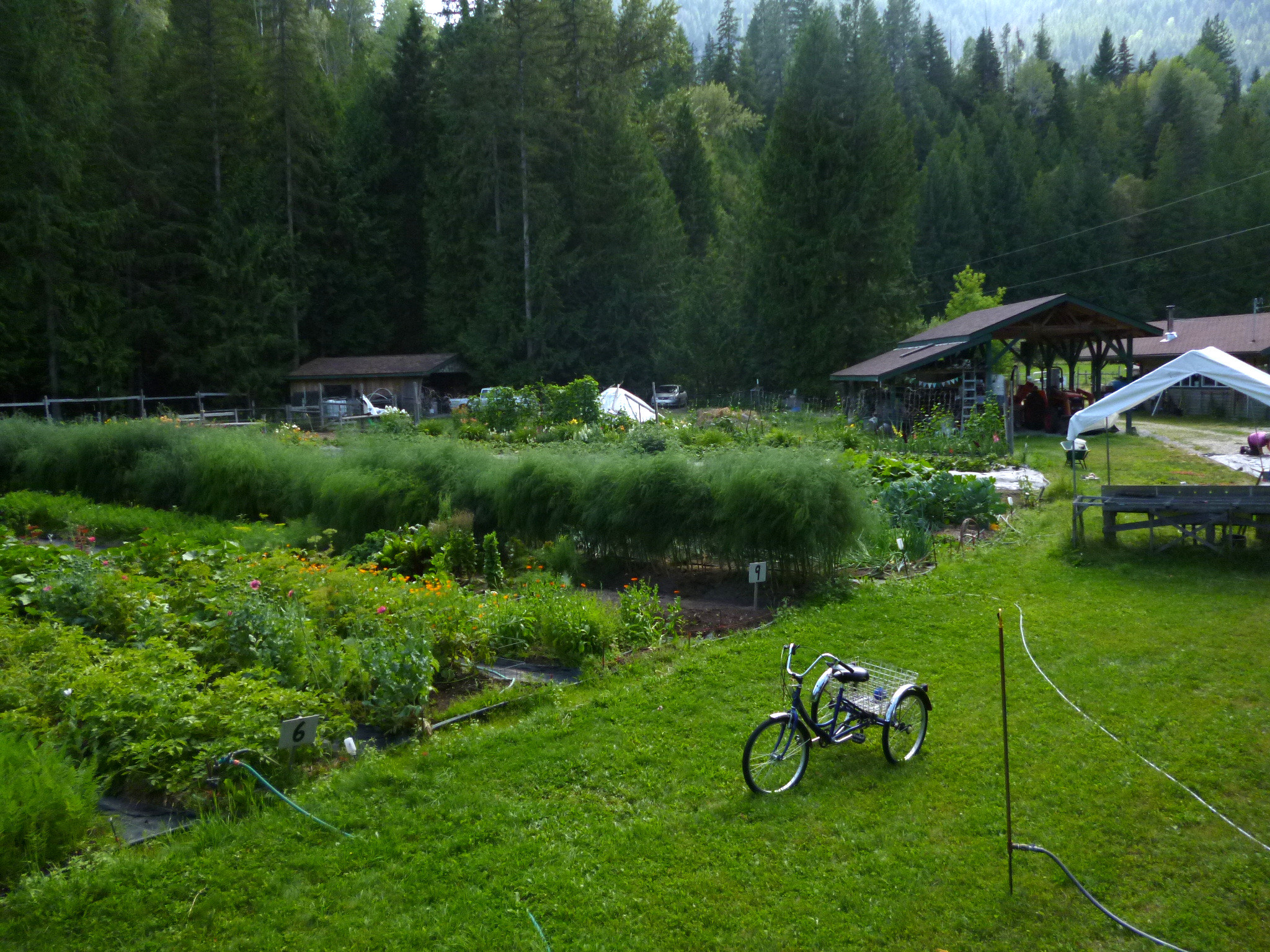
When Judi is 90, she says, “I want friends who are 60 and 70.” Her strong attachment to the land she stewards and her desire to want to die there are part of the reason they pursued a land match. They had been looking for people to transition into Tulaberry to for more than a decade; aging in place remains important to them but it is “hard to watch fencing fall down on the land when you no longer have the energy to deal with it.”
For Judi and Alex, the BCLMP plays an important role, as “many young farmers need a leg up to get going, and retiring farmers want to age in place.” Working with hands-on support made them think about things that hadn’t come to mind and how to word things. She reflects on it as a great process, getting through negotiations to the point where “everyone was happy.”
Emily and Nathan came into farming at different times in their lives. Nathan was inspired by Emily. After growing up in a big city, he “was feeling burnt out and unhappy and wanted to be closer to nature and work that really mattered to me. The idea of growing food for a living had never crossed his mind until he met her,” he says, meaning Emily (on a dance floor, six years ago, no doubt!). He reflects on how Emily “showed me what was possible through farming and together we made our dreams of starting a farm a reality.”
Emily came to farming for a combination of reasons. “I wanted to do good in the world, felt a strong calling to do something about climate change and the state of the environment, and really liked good food.” She says she “had grown up with a big garden on an acreage and was always involved in growing food throughout my formative years. When I went to college, I began to explore my passion for food and farming more deeply. The work was so nourishing to me, I knew I wanted to be a farmer.”
While Nathan’s formal education is in business, marketing, and holistic nutrition and Emily studied ecological agriculture and community development, some of the soft and hard skills that have helped them in their farming career have surprised them. Nathan notes that “taking the time to really understand marketing, branding, and website design has helped immensely,” and recommended reading How to Build a Story Brand by Donald Miller and anything by Seth Godin.
“Baking skills have really come in handy, surprisingly! I’ve always had a passion for sweets and spent a year working for a small bakery in Edmonton,” says Emily. “I’ve spent a lot of time developing recipes that utilize what we are growing on the farm. Our value-added products have really helped to set us apart and bring a more diversified income stream to the farm.”
Before meeting Emily and Nathan, Judi compared finding compatibility between Tulaberry’s goals and those of new farmers to “waiting for a unicorn.” Over the years, they had lots of great young people out there working with them. She says she “saw a lot of people get into it and then realize how much work it is.” That’s why for her, finding farmers with a couple of years under their belt was important, so that she felt confident this was something they wanted as a long-term lifestyle.
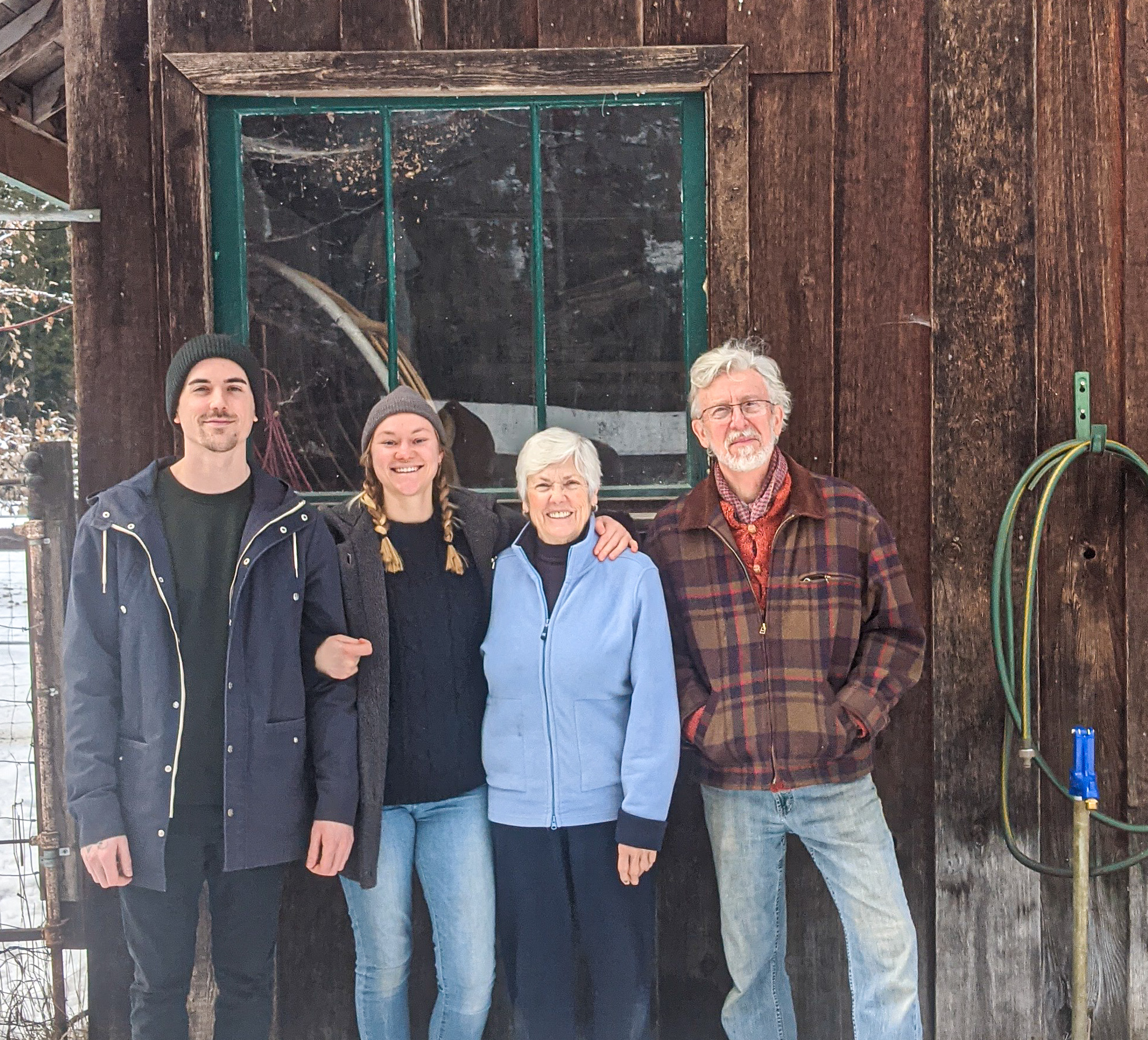
Compared to the idea she had of who she was looking for to transition the farm to, Judi says Emily and Nathan are, in short, “they are everything we ever wanted.” In more detail, she listed out the qualities that have been the most important for them and that Emily and Nathan embody in spades:
Good communication skills: “If you can’t talk together, it’s not going to work. If people harbour feelings and don’t communicate what’s bugging them or what they’re happy about, how do you make a relationship work?”
Experience in farming: They “didn’t want to start from scratch,” and Emily had four years of farming under her belt.
Off-farm income: “It’s hard to make a living on farming here; farms are small. I wasn’t convinced it can’t be done but it can present a huge hurdle if you don’t have something on the side. Nathan has his Level Up business to help support the farm in start-up.”
Being a generous spirit: “When I make dessert, I bring over some for them and they do the same. Their generosity of spirit matches ours.”
Reliability: “If someone says they will feed the chickens, we need to be able to walk away and know they will do it. Emily and Nathan have done everything they say they are going to do and more.”
Enthusiastic and energetic: Self-explanatory!
Judi says that having new farmers on their land has changed the way they experience it. “Like having a kid, you see the world fresh through their eyes. As snow melts and things come up, they are seeing it with fresh eyes and enthusiasm and I feel like my own has increased because of being able to see the farm through their eyes.”
For their first season on the farm, Emily and Nathan are planning on offering 20 different value-added products throughout the season and are particularly excited about having Judi and Alex as their mentors. “Mentorship means having someone to go to for support and guidance who is dedicated to helping us succeed,” Emily says. Having mentors has “really helped boost our confidence and given our farming operation a huge advantage over where we were last year. Judi and Alex have been farming in the Kootenays for so long and have such a great reputation in the community. Just by being associated with Tulaberry Farms we have noticed that people are a lot more receptive to us and are excited to see our new partnership.”
As a mentor, Judi sees her role this season “to work with them when they want me to work with them. It’s important that they don’t feel that they are being micromanaged or I’m looking over their shoulders.” She is confident that they know what they’re doing but not necessarily on this land, and that is where she sees her role in mentorship—though she also knows that on transplanting days, “having three sets of hands can make a big difference!”
Judi is inspired by the idea that “mentorship is something that flows both ways”—Emily has shown Judi how to make sourdough bread and frosting out of maple syrup and butternut squash—and in turn, Emily and Nathan are inspired by Judi and Alex’s “life story and dedication to their land.” “They essentially bought a raw piece of land more than 30 years ago and through sheer hard work and determination they slowly built a home in the woods and a farm, structure by structure, until it became the beautiful property that is it today.” This has shown the new farmers that “even if your dream lifestyle seems daunting to achieve, if you stick with it long enough and don’t give up, you can accomplish almost anything.”
This winter, their first on the farm, they were busy! “We added a bakery section to the online shop so that we can offer more than just vegetables,” says Emily. “We use chicken eggs from the farm, local cream when available, and locally-sourced grain that we mill using our Komo mill. This has helped to differentiate our business as well as increase our sales when we don’t have a lot of vegetables to sell throughout the winter. We’re doing row crops and Judi is teaching us how to do broiler chickens.”
Reflecting on the experience of sharing land with Emily and Nathan so far, Judi says she has been “pleasantly surprised with their generosity of spirit,” while Emily and Nathan spoke to how “easy and seamless it has been. Judi and Alex have been incredibly generous from the very beginning and we could tell they just want to see us succeed.”
Emily and Nathan aspire to one day transition from farmers markets and CSAs to a farm-to-table bakery they plan to call Pantry. “Our dream would be to be able to grow and produce as many ingredients for the bakery as we can to make it a true farm-to-table experience,” Emily says. As for where Judi sees herself and the farm in 20 years, she says, “at the age of 93, I hope to be taking care of chickens, even if I am not farming too much, but I hope the farm remains. I see so many possibilities—instead of withdrawing my energy, this new life on the farm is expanding it.”
The BC Land Matching Program is funded by the Province of British Columbia, with support from Columbia Basin Trust, Real Estate Foundation of BC, Bullitt Foundation, and Patagonia.
Hailey Troock grew up in the small agricultural community of Oyama, located in the Okanagan. Now based in Nelson, she spends her time connecting farmers, landholders, and allies in the Columbia Basin region as a Land Matcher with the BC Land Matching Program delivered by Young Agrarians.
Feature image: Tulaberry Farm nestled in the mountains. Credit: Tulaberry Farm


